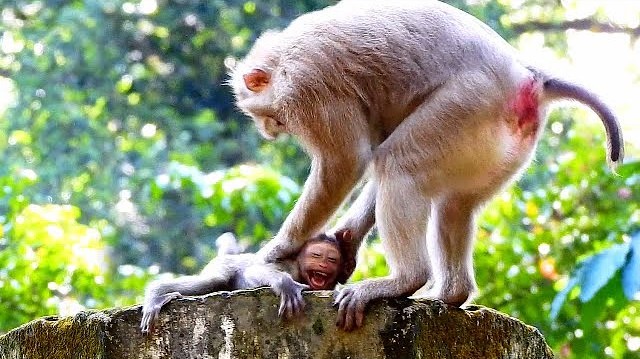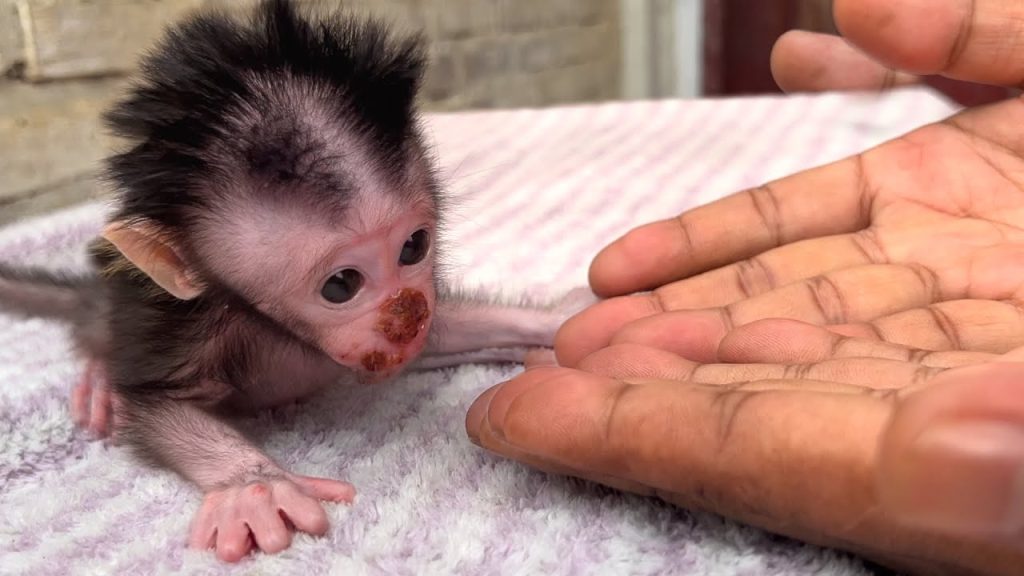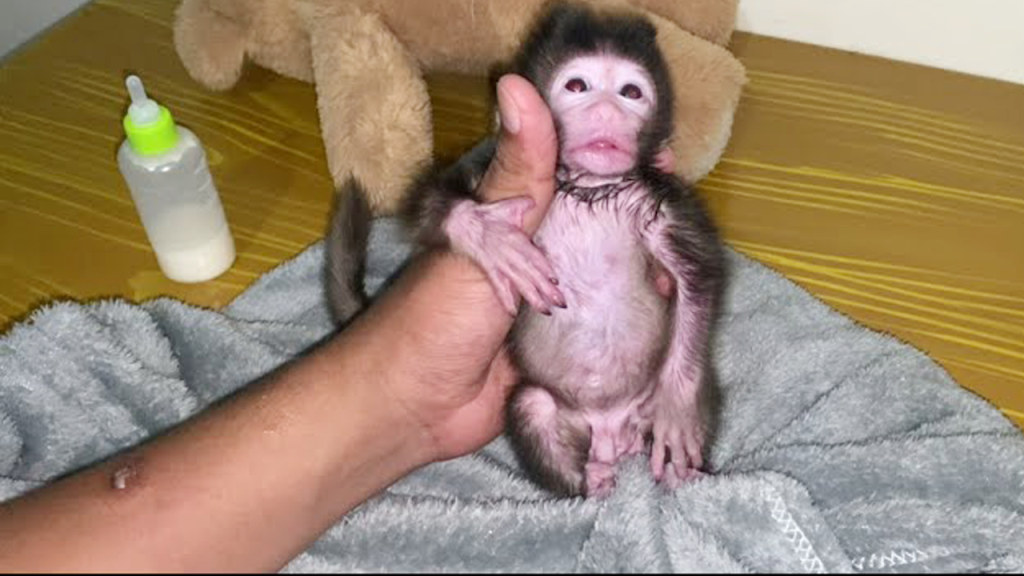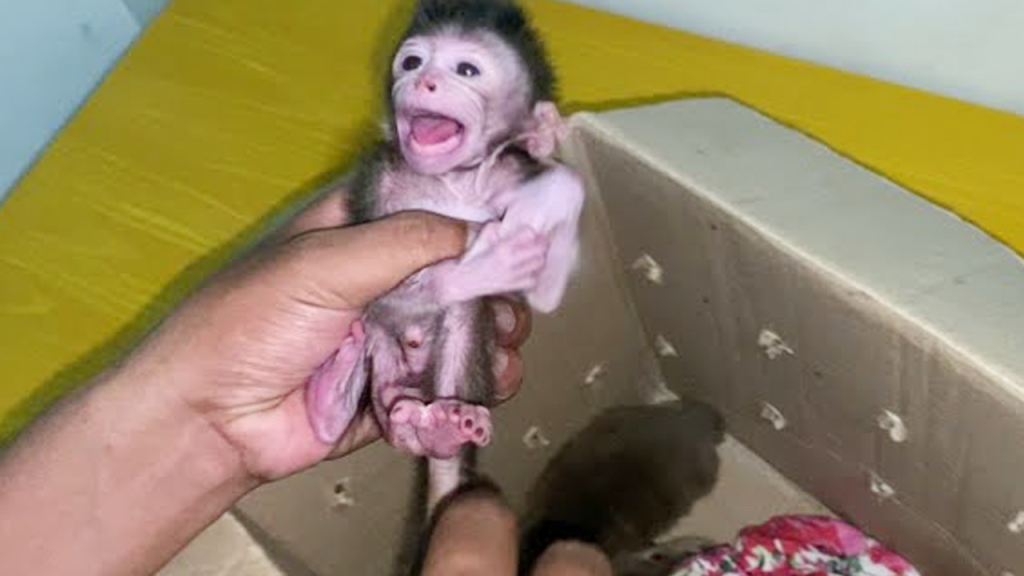
In the quiet corner of the troop, a sad scene unfolded—little Brady, a baby monkey full of energy and curiosity, was being pushed away by his mother, Rose. Once lovingly cradled in her arms, he now found himself rejected, crying softly as he tried to nurse. But Rose turned away, showing no sign of giving in. To onlookers, it was heartbreaking. Why would a mother deny her baby milk and affection? Yet in the world of monkeys, even painful moments like these have meaning.
Brady had grown quickly. He was no longer the fragile newborn who needed constant feeding. Rose had begun the natural process of weaning—teaching her baby to stop nursing and start eating solid foods. It was a step every young monkey must face, though it often comes with tears and confusion. For Brady, it felt like the end of the love he had always known. Every time he reached out, hoping for milk or a cuddle, Rose pushed him aside, sometimes even giving a warning nip or shove to keep him away.
The scene was emotional. Brady cried loudly, his tiny face filled with sadness. He clung to his mother’s leg, desperate for comfort, but Rose stayed firm. Her expression remained calm but determined. This wasn’t cruelty—it was discipline, nature’s way of helping her child grow independent. By denying milk, Rose was encouraging Brady to learn how to find food on his own, to explore, and to rely less on her constant care. Still, to a baby, that lesson felt like rejection.
At times, Brady sat alone, watching other young monkeys nurse or play with their mothers. His little body trembled as he let out quiet sobs. It was a heart-wrenching sight, but it didn’t last forever. Older members of the troop—especially young females—sometimes came to comfort him. They groomed him gently or played nearby, helping distract him from his sadness. Slowly, Brady began to follow them, learning by watching how to forage, climb, and socialize.
Meanwhile, Rose observed from a distance. Though she seemed cold, she never truly ignored him. Her eyes followed his every move. When danger came too close—a loud noise, a strange monkey, or a predator’s shadow—she rushed to his side instantly. Her body language was clear: “I’m still your mother. I still protect you—but you must grow up.”
Over time, Brady began to understand. He learned how to eat fruits and leaves, how to play with others, and how to move confidently without clinging to his mother. His cries became less frequent, replaced by playful chatter and curiosity. Rose’s tough love had worked—her baby was becoming strong, independent, and ready for life beyond her care.
Though it began as a sad chapter, the story of Rose and Brady is ultimately one of growth. Her rejection wasn’t a lack of love; it was an act of preparation. In the wild, survival depends on learning quickly, and a mother’s discipline is often the greatest gift she can give.
Poor Brady may have lost his milk—but through Rose’s strength, he gained something far more important: the power to stand on his own.


